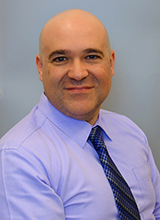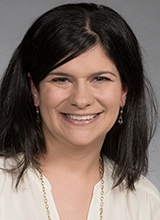
Scholarly Expertise: Psychiatric problems


Ty Lostutter
Personal Statement
I am a licensed clinical psychologist in Washington State. I am the Director of the University of Washington School of Medicine’s Psychology Internship Program which is accredited by the American Psychological Association’s Office of Program Consultation and Accreditation. And, I conduct research on health and risk behaviors across the lifespan. Specifically, I have conducted research in the areas of college student alcohol use, young adult gambling behavior, and co-morbidity of substance use and mental health/risk behaviors (i.e. risky sexual behaviors). I have extensive experience working with college students/young adults, military/veteran, and minority/diverse populations. I am also interested in mental health issues including depression, anxiety, and PTSD. I maintain an active clinical practice in the areas of mental health issues with patients diagnosed with hematological and oncological illness and have clinical responsibilities at the Fred Hutchinson Cancer Center. I also provide clinical supervision for psychology residents and psychology practicum students at Fred Hutchinson Cancer Center as well. Overall, my professional aspirations are to improve the public health through empirically-supported psychological interventions and providing mentorship to diverse trainees to expand the reach of psychology.

Jonathan Buchholz
I am grateful to be a lifelong University of Washington Husky. Training at the UW has afforded me the chance to learn from world class educators, clinicians, and researchers. I’ve learned from excellent mentorship that focusing on what you are passionate about is critical to professional satisfaction and success. For me, working with individuals experiencing co-occurring mental health and substance use disorders reminds me of the amazing resiliency that lies within us all. As a clinician educator at the VA Puget Sound, I am humbled at the trust both patients and trainees place in me everyday. It is a privilege to be part of this amazing place.

Anna Ratzliff
Personal Statement
I am a national expert on collaborative care and specifically, on training teams to implement and deliver mental health treatment in primary care settings. My passion for translating complex research ideas into practical real-world applications began when I received my MD and PhD in Anatomy and Neurobiology as part of the Medical Scientist Training Program at the University of California at Irvine. I am currently a Professor in the Department of Psychiatry and Behavioral Sciences at the University of Washington where I have developed additional expertise in suicide prevention training, mental health workforce development, adult learning best practices, and mentorship. I am the Co-Director of the AIMS Center (Advancing Integrated Mental Health Solutions) and Director of the UW Integrated Care Training Program for residents and fellows.

Jürgen Unützer
Personal Statement
My work focuses on the integration of mental health services and general medical care and on translating research on evidence-based mental health interventions into effective clinical and public health practice. I have published over 300 scientific papers and I am the recipient of numerous federal and foundation grants and awards for my research on integrated behavioral health care. I work with national and international organizations dedicated to improving behavioral health care for diverse populations. I have served as Senior Scientific Advisor to the World Health Organization and as an advisor to the President’s New Freedom Commission on Mental Health.

